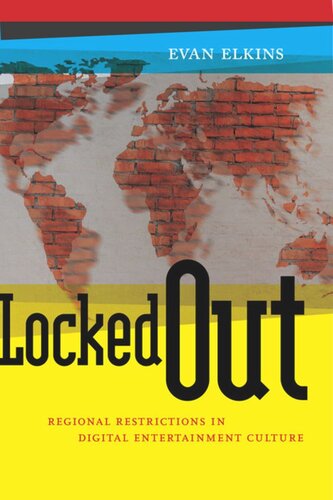

Most ebook files are in PDF format, so you can easily read them using various software such as Foxit Reader or directly on the Google Chrome browser.
Some ebook files are released by publishers in other formats such as .awz, .mobi, .epub, .fb2, etc. You may need to install specific software to read these formats on mobile/PC, such as Calibre.
Please read the tutorial at this link: https://ebookbell.com/faq
We offer FREE conversion to the popular formats you request; however, this may take some time. Therefore, right after payment, please email us, and we will try to provide the service as quickly as possible.
For some exceptional file formats or broken links (if any), please refrain from opening any disputes. Instead, email us first, and we will try to assist within a maximum of 6 hours.
EbookBell Team

4.1
10 reviewsA rare insight into how industry practices like regional restrictions have shaped global media culture in the digital era
“This content is not available in your country.” At some point, most media consumers around the world have run into a message like this. Whether trying to watch a DVD purchased during a vacation abroad, play an imported Japanese video game, or listen to a Spotify library while traveling, we are constantly reminded of geography’s imprint on digital culture. We are locked out.
Despite utopian hopes of a borderless digital society, DVDs, video games, and streaming platforms include digital rights management mechanisms that block media access within certain territories. These technologies of “regional lockout” are meant first and foremost to keep the entertainment industries’ global markets distinct. But they also frustrate consumers and place territories on a hierarchy of global media access. Drawing on extensive research of media-industry strategies, consumer and retailer practices, and media regulation, Locked Out explores regional lockout’s consequences for media around the globe. Power and capital are at play when it comes to who can consume what content and who can be a cultural influence. Looking across digital technologies, industries, and national contexts, Locked Out argues that the practice of regional lockout has shaped and reinforced global hierarchies of geography and culture.